
Stephenson's Rocket is an early steam locomotive of 0-2-2 wheel arrangement. It was built for and won the Rainhill Trials of the Liverpool and Manchester Railway (L&MR), held in October 1829 to show that improved locomotives would be more efficient than stationary steam engines.

The National Railway Museum is a museum in York forming part of the Science Museum Group. The museum tells the story of rail transport in Britain and its impact on society. It is the home of the national collection of historically significant railway vehicles such as Mallard, Stirling Single, Duchess of Hamilton and a Japanese bullet train. In addition, the National Railway Museum holds a diverse collection of other objects from a household recipe book used in George Stephenson's house to film showing a "never-stop railway" developed for the British Empire Exhibition. It has won many awards, including the European Museum of the Year Award in 2001.

The Minnesota Transportation Museum is a transportation museum in Saint Paul, Minnesota, United States.
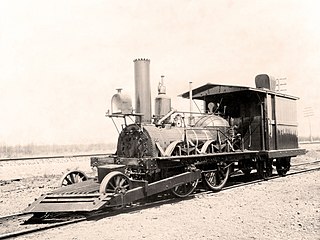
John Bull is a historic British-built railroad steam locomotive that operated in the United States. It was operated for the first time on September 15, 1831, and became the oldest operable steam locomotive in the world when the Smithsonian Institution ran it under its own steam in 1981. Built by Robert Stephenson and Company, it was initially purchased by and operated for the Camden and Amboy Railroad, the first railroad in New Jersey, which gave it the number 1 and its first name, "Stevens". The C&A used it heavily from 1833 until 1866, when it was removed from active service and placed in storage.

Rutland Railway Museum, now trading as Rocks by Rail: The Living Ironstone Museum, is a heritage railway on part of a former Midland Railway mineral branch line. It is situated north east of Oakham, in Rutland, England.

Hamiota is an unincorporated urban community in the Hamiota Municipality within the Canadian province of Manitoba that held town status prior to January 1, 2015. It is located on Provincial Trunk Highway 21 midway between the Trans-Canada Highway and the Yellowhead Highway. It is located in Western Manitoba, 84 kilometers northwest of Brandon. The trading area radius of 20 kilometres has approximately 10,000 people. First known as Hamilton, for Thomas Hamilton, one of the first settlers, the town name was changed to avoid confusion with Hamilton, Ontario. The new name contracted Hamilton with the Sioux word ota, "much".
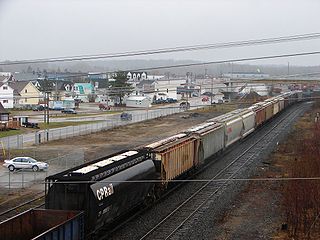
Chapleau is a township in Sudbury District, Ontario, Canada. It is home to one of the world's largest wildlife preserves. Chapleau has a population of 1,942 according to the 2016 Canadian census.

Unorganized North Algoma District is an unorganized area in northeastern Ontario, Canada, comprising all areas in Algoma District, north of the Sault Ste. Marie to Elliot Lake corridor, which are not part of an incorporated municipality or a First Nation. It covers 44,077.03 km2 (17,018.24 sq mi) of land, and had a population of 6050 in 2021. Many of these communities were/are stations on the Algoma Central Railway or were logging/mining towns.
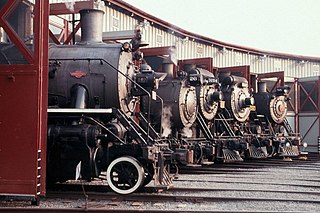
Steamtown National Historic Site (NHS) is a railroad museum and heritage railroad located on 62.48 acres (25.3 ha) in downtown Scranton, Pennsylvania, at the site of the former Scranton yards of the Delaware, Lackawanna and Western Railroad (DL&W). The museum is built around a working turntable and a roundhouse that are largely replications of the original DL&W facilities; the roundhouse, for example, was reconstructed from remnants of a 1932 structure. The site also features several original outbuildings dated between 1899 and 1902. All the buildings on the site are listed with the National Register of Historic Places as part of the Delaware, Lackawanna and Western Railroad Yard-Dickson Manufacturing Co. Site.
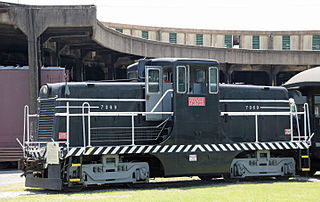
The GE 44-ton switcher is a four-axle diesel-electric locomotive built by General Electric between 1940 and 1956. It was designed for industrial and light switching duties, often replacing steam locomotives that had previously been assigned these chores.
Kitson and Company was a locomotive manufacturer based in Hunslet, Leeds, West Yorkshire, England.

The National Rail Museum in Chanakyapuri, New Delhi, displays exhibits on the history of rail transport in India. The museum was inaugurated on 1 February 1977. The museum spans over an area of over 11 acres and the indoor gallery comprises an octagonal building which houses six display galleries and a large open area is laid out to simulate the atmosphere of a railway yard. It is open every day except Mondays and national holidays.

The Texas Transportation Museum (TTM) is a transportation museum located in San Antonio, Texas.
The Belton, Grandview and Kansas City Railroad (SHRX) is short line passenger railroad and museum located in Belton, Missouri. It operates as a heritage railroad, on what was once the St. Louis and San Francisco Railway (Frisco), on the Kansas City to Springfield branch. With the merger of the Frisco with the Burlington Northern, the line was partially sold to the Kansas City Southern Railway north of 155th Street. The north of the line is used once a year when tree trimming/weed spraying takes place, and the tracks are bad though can still can be used. The bridge is still there past Markey Road but with missing ties, while the southernmost portion from Peculiar, MO. to Clinton, MO. has been scrapped and abandoned. This left the remaining trackage of a few miles connecting Grandview and Belton, Missouri. The railroad currently operates a 1952 GM GP 9 locomotive, which is used to pull an excursion train. Also included in the railroad's collection are various locomotives, cars and equipment.
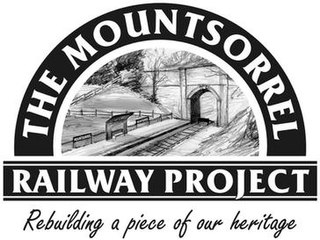
The Mountsorrel Railway was a network of industrial railway lines that served the granite quarries which dominate the Leicestershire village of Mountsorrel. After being closed in the 1950s, a section was reopened in 2015 as a heritage line run by Mountsorrel & Rothley Community Heritage Centre.
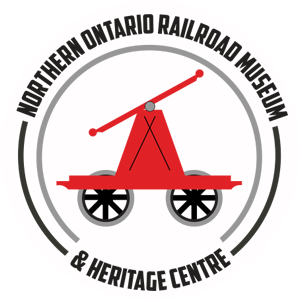
The Northern Ontario Railroad Museum and Heritage Centre is a rail transport museum located in the community of Capreol in Greater Sudbury, Ontario, Canada. The museum's mandate states it is, "focused on the preservation of historical artifacts that pay tribute to the heritage of Northern Ontario and the history of the lumber, mining and railroading industries."

The Railway Museum of Catalonia is a museum in Vilanova i la Geltrú. The museum has a large collection of historic railway locomotives and other rolling stock in a former station and roundhouse. It is located close to the railway station in Vilanova i la Geltrú, 40 km south of Barcelona.
Secondary Highway 651, commonly referred to as Highway 651, is a provincially maintained highway in the Canadian province of Ontario. The highway is 52.8 kilometres (32.8 mi) in length, connecting Highway 101 east of Wawa with the remote community of Missanabie.

The Edmonds Historical Museum is a free museum in Edmonds, Washington, which tells the story of Edmonds' history through various temporary and permanent exhibits and a small collection of artifacts. It was established in 1973 by the Edmonds-South Snohomish County Historical Society. It is located in downtown Edmonds at 118 5th Ave. North.
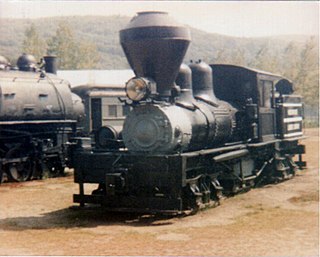
Steamtown, U.S.A., was a steam locomotive museum that ran steam excursions out of North Walpole, New Hampshire, and Bellows Falls, Vermont, from the 1960s to 1983. The museum was founded by millionaire seafood industrialist F. Nelson Blount. The non-profit Steamtown Foundation took over operations following his death in 1967. Because of Vermont's air quality regulations restricting steam excursions, declining visitor attendance, and disputes over the use of track, some pieces of the collection were relocated to Scranton, Pennsylvania in the mid-1980s and the rest were auctioned off. After the move, Steamtown continued to operate in Scranton but failed to attract the expected 200,000–400,000 visitors. Within two years the tourist attraction was facing bankruptcy, and more pieces of the collection were sold to pay off debt.

















